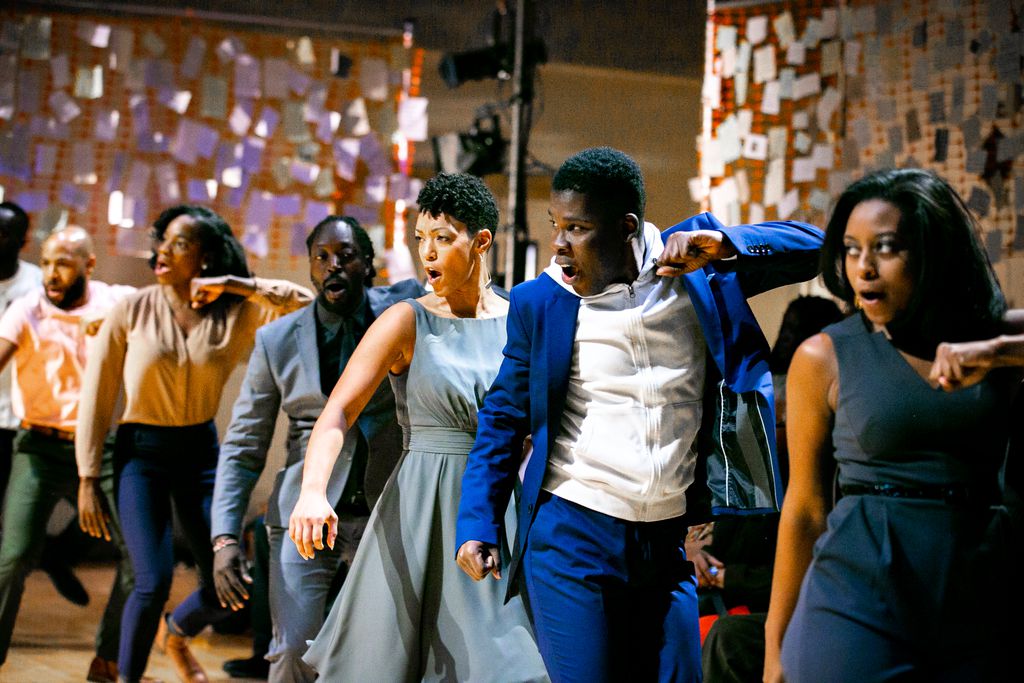Press
In The Boston Globe: We need a ritual to remember black lives like DJ Henry’s. This play gives us one
11.19.2019

Sometimes it’s a look, a white woman clutching her bags a little tighter when she sees you.
Sometimes it’s at work, when a white co-worker talks over you, repeats your ideas as their own, or tries to connect to you by making presumptions based on your blackness.
Sometimes it’s in your face — a finger, a threat, or in the most fatal cases, a gun. Someone wants to physically hurt you because of your blackness.
Every day is a struggle so normalized we just deal with the scrapes, scratches, and big, blue bruises. We keep smiling, keep thriving, keep moving along.
Until something stops us and forces us to catch our breath.
Thursday night at Hibernian Hall in Roxbury, a little less than 100 people gathered for a play, The Movement Theatre Company’s production of “What to Send Up When It Goes Down” by Aleshea Harris.
It’s less of a play and more of a ritual, a reckoning, and a recognition of anti-blackness — be it police brutality, prejudice, or daily microaggressions.
We started by walking through a photo gallery — more than 200 portraits of black Americans of all ages killed by racialized violence — many of them at the hands of police.
…
Presented by American Repertory Theater and Hibernian Hall, “What to Send Up When It Goes Down” isn’t just a play, it’s collective solace. Playing through Nov. 24, it has showtimes at both locations. It intentionally opened in Hibernian Hall, in Dudley Square, in Roxbury.
Read the entire article as it originally appeared in The Boston Globe here.